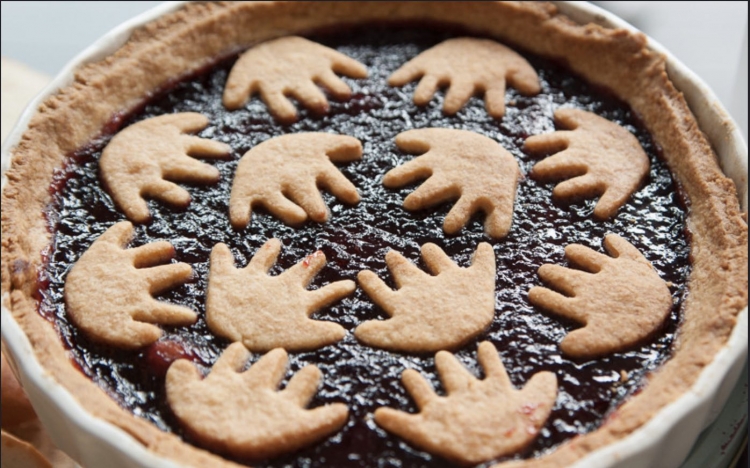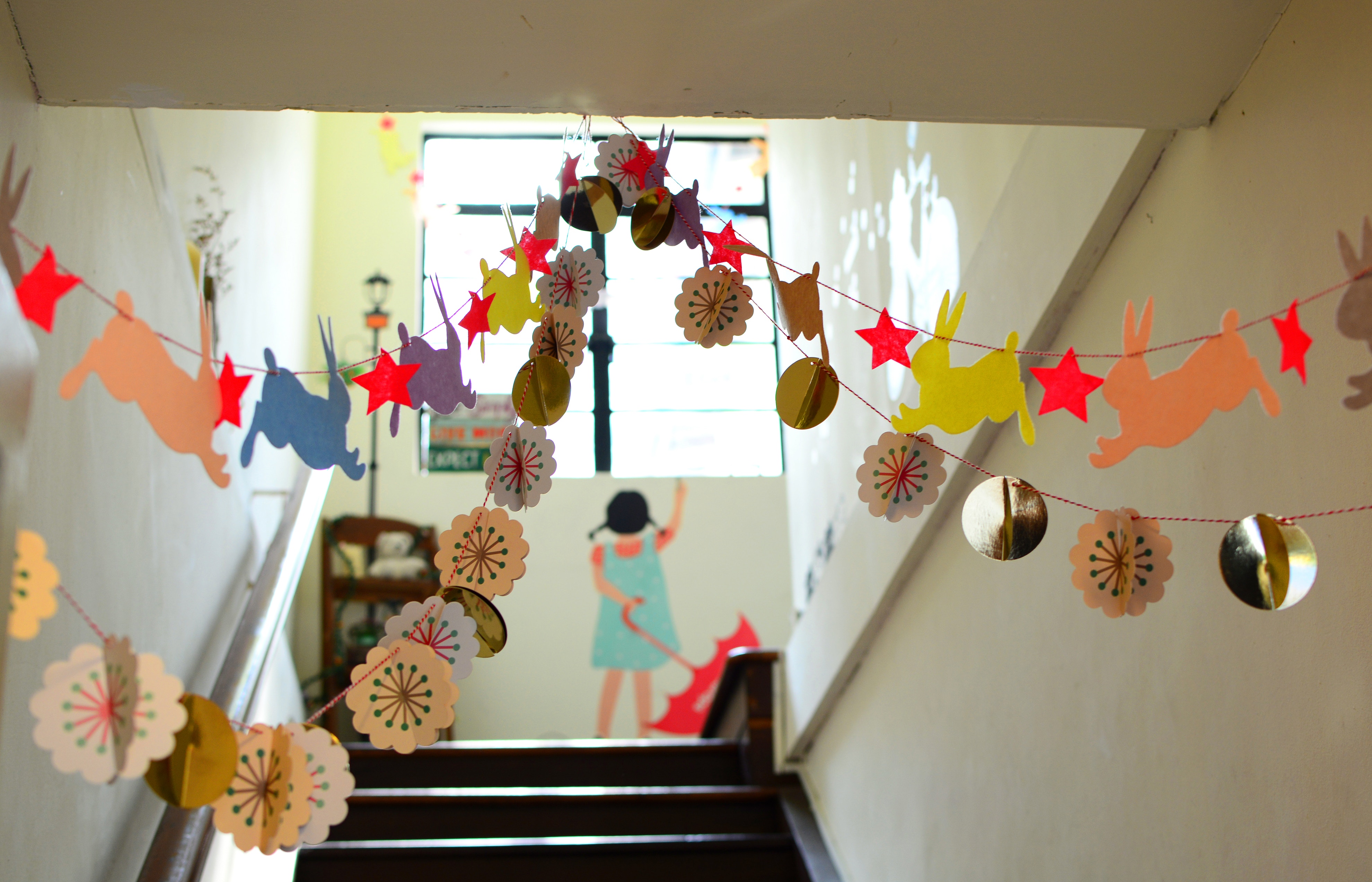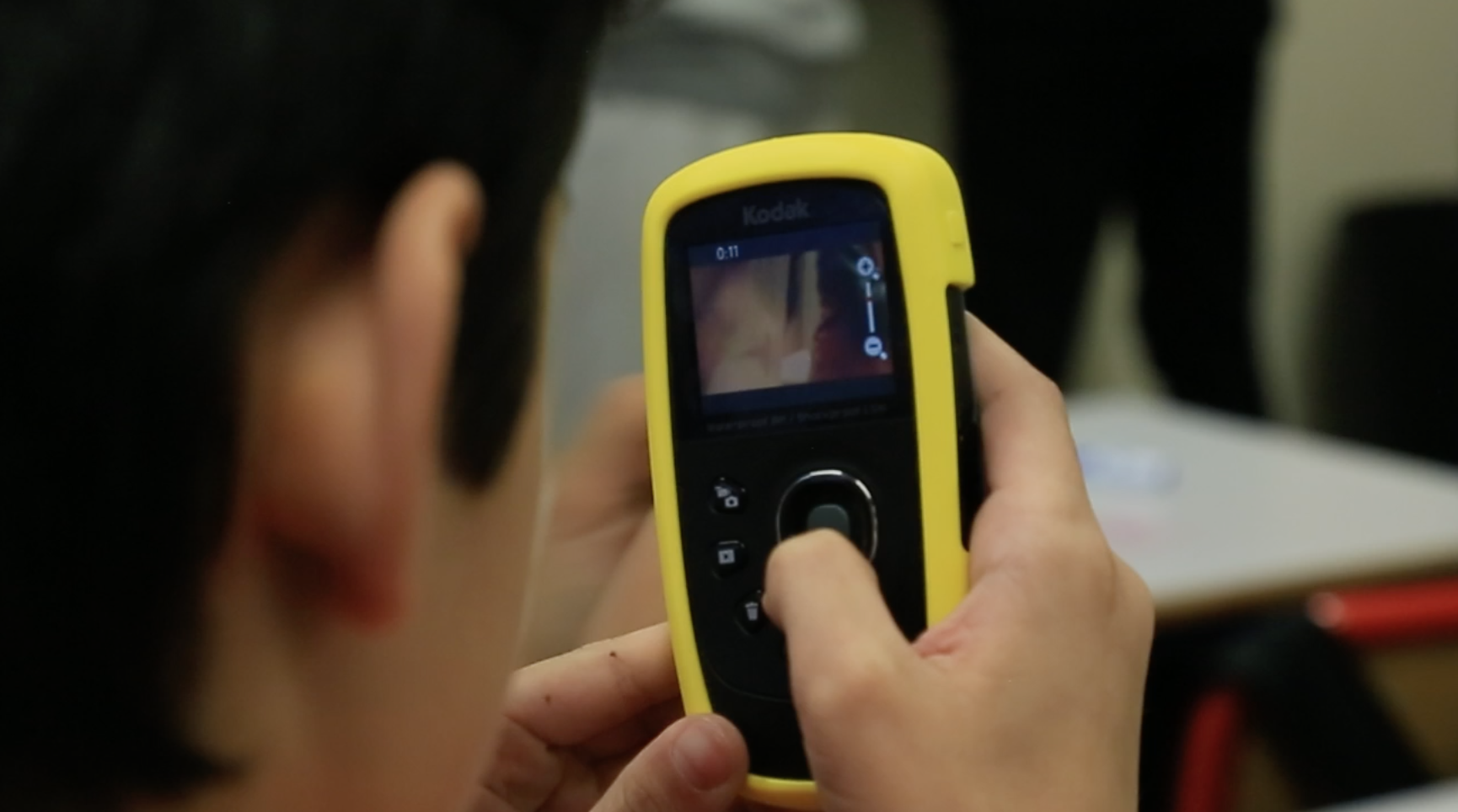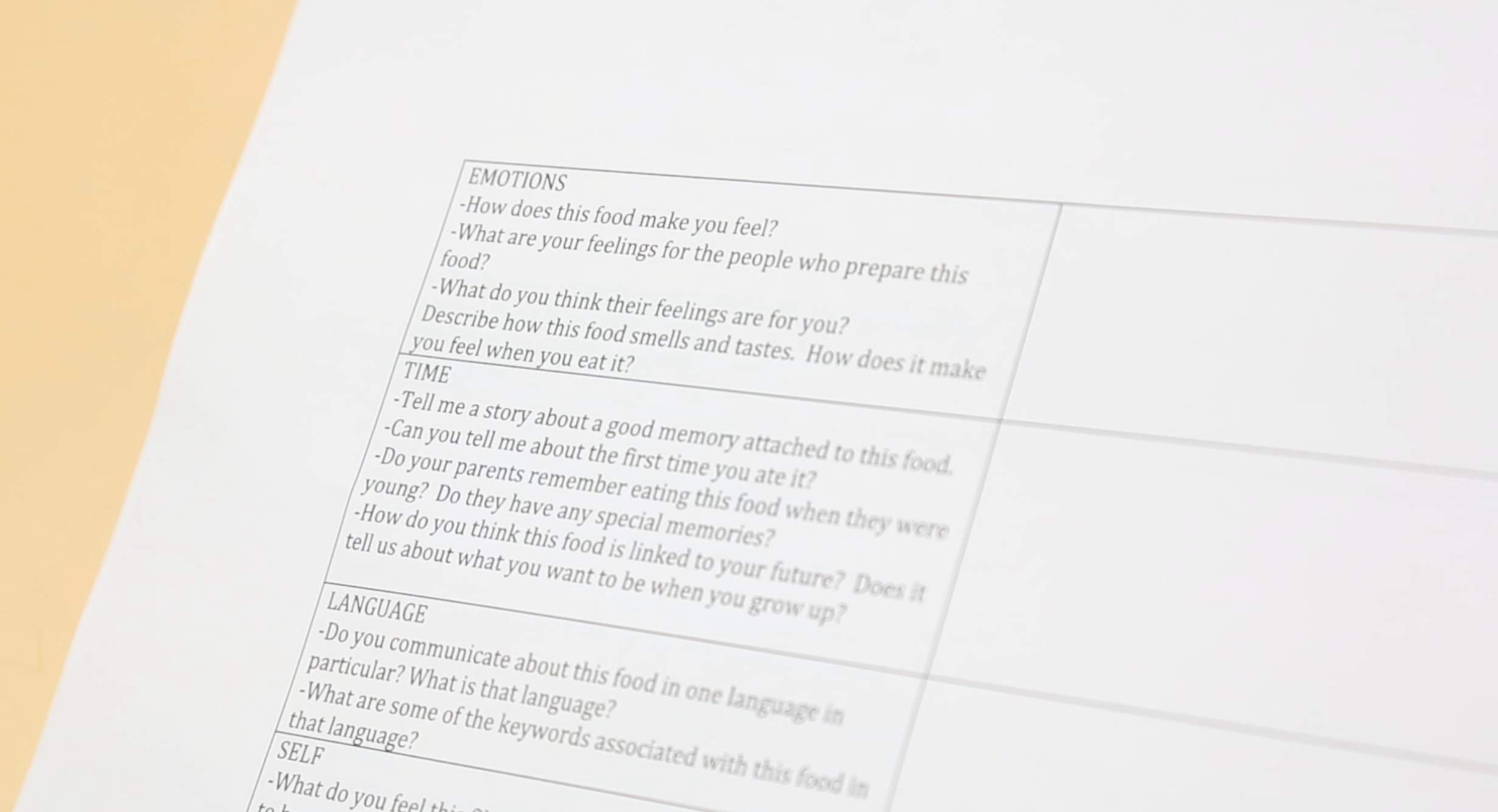Food Without Borders

Food Without Borders is a collaboration between The Civic Media Lab, Filmmakers Without Borders, Collège Maurice Ravel and Professor Christy Shields, which aims to help connect and enhance the understanding between 6th grade anglophone and francophone students in Paris. Through ethnographic filmmaking and food studies, students will learn basic filmmaking and photography skills on durable pocket cameras to produce their own short documentary films. Each student will share, listen, and teach their peers through filmed interviews about a food that connects them to their family and others and a memory from their past. The final films will be screened at Maurice Ravel in February 2018 for family and friends to view.
Image Credit: Unsplash/Cel-LisboaThe team behind Food Without Borders includes AUP's Professor Christy Shields, along with Global Communication's Masters students Beth Grannis, Lauren Green, Max Johnson and undergraduates Thomas Lopez, Maria Sarmiento, Emmaline Saito, and Mateo Galindo. Holding workshops which consist of shooting and framing, camera angles, camera movement, and documentary film structure, Maurice Ravel students consider the role of food, memory, cultural identity, and language. Equipped with digital tools and anthropological insight, students film interviews and supporting footage to create their short documentary films.
AUP will host a screening of the films in early 2018.
Image Credit: Maria SarmientoInspired by Marcel Proust’s reflection on the madeleine and considering the powerful and uniting elements that themes of food can create, this film was produced for Professor Shields’ Food, Culture and Communication class in spring 2017 and stands as the launchpad for Food Without Borders. This initiative considers how we can bridge the gap between various cultural understandings or misunderstandings, what are the ways in which digital storytelling can promote youth empowerment, and how we can best engage with the world around us with an empathetic mindset.
Image Credit: Beth GrannisMaurice Ravel is currently the only school in France to integrate both the English OIB section (Option International du Baccalauréat) consisting of a group of 15 students who are bilingual in both French and English who tested into the program and the Francophone FB (French Baccalaureate), 14 students who tend to speak either solely French or French in addition to another language other than English.
Image Credit: Beth GrannisThe anglophone OIB students, usually from middle to upper middle socio-economic backgrounds whose families tend to be multi-national, partake in additional schooling until university with intensified curriculum covering history, English literature, and the social sciences. Those in the francophone FB section are educated in the traditional public sector of the French school system and at this particular junior high, often are from lower socio-economic backgrounds or from recently immigrated families, and do not receive additional education. In the past, these two sectors of the 6th grade have been educated separately, but at Maurice Ravel, both Anglophone and Francophone students are educated together.










